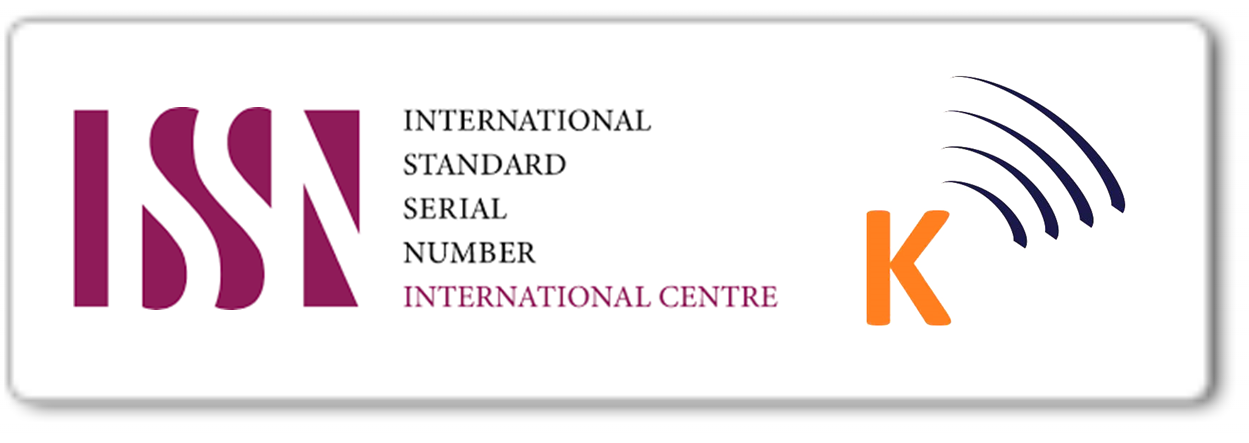PROFIL LITERASI DIGITAL SISWA KELAS XI PADA PEMBELAJARAN JARAK JAUH MATA PELAJARAN KIMIA
Keywords: digital literacy, distance learning, literasi digital, pembelajaran jarak jauh
Abstract
The study aims to measure and describe the profile of students’ digital literacy who take distance learning in chemistry subjects. During the Covid-19 pandemic, learning carried out online using digital-based technology. This research measures digital literacy using descriptive research methods with quantitative approaches. Data collection carried out by giving digital literacy questionnaires to 74 eleven-grade students who are conducting online learning. The students assess themselves through a questionnaire about digital literacy, the results of the study indicate that the digital literacy of eleven-grade students on online learning are as follows: 1) The aspect of the ability to use digital media obtained an average score of 79.95; 2) The aspects of managing digital learning platforms obtained an average score of 76.29; 3) The aspect of the use of advanced digital media obtained an average score of 68.48; and 4) Ethical and safety aspects in the use of digital media obtained an average score of 79.77.
Penelitian ini bertujuan untuk mengukur dan menggambarkan profil literasi digital siswa kelas XI ketika mengikuti pembelajaran jarak jauh pada mata pelajaran kimia. Selama masa pandemi Covid-19, pembelajaran dilaksanakan secara daring dan luring dengan memanfaatkan teknologi berbasis digital. Penelitian ini melakukan pengukuran literasi digital menggunakan metode penelitian deskriptif dengan pendekatan kuantitatif. Pengumpulan data dilakukan dengan cara memberikan kuisioner pengukuran literasi digital kepada 74 siswa kelas XI yang melaksanakan pembelajaran kimia secara daring. Siswa menilai dirinya sendiri melalui kuisioner literasi digital, hasil penelitian menunjukkan bahwa literasi digital siswa kelas XI pada pembelajaran secara daring sebagai berikut: 1) Pada aspek kemampuan menggunakan media digital diperoleh rata-rata skor sebesar 79.95; 2) Pada aspek pengelolaan platform pembelajaran digital diperoleh rata-rata skor sebesar 76,29; 3) Pada aspek penggunaan media digital tingkat lanjut diperoleh rata-rata skor sebesar 68,48; dan 4) Pada aspek etika dan keamanaan dalam penggunaan media digital diperoleh rata-rata skor sebesar 79,77.
Downloads
References
Aşkım Kurt, A., & Gürsel Emiroğlu, B. (2018). Analysis of Students’ Online Information Searching Strategies, Exposure to Internet Information Pollution and Cognitive Absorption Levels Based on Various Variables. Malaysian Online Journal of Educational Technology, 6(1), 18–29. www.mojet.net.
Chan, B. S. K., Churchill, D., & Chiu, T. K. F. (2017). Digital Literacy Learning In Higher Education Through Digital Storytelling Approach. Journal of International Education Research (JIER), 13(1), 1–16. https://doi.org/ 10.19030/jier.v13i1.9907.
Hatlevik, O. E., Gudmundsdóttir, G. B., & Loi, M. (2015). Examining factors predicting students’ digital competence. Journal of Information Technology Education, 14(1), 123–137. https://doi.org/10.28945/2126.
Kaeophanuek, S., Jaitip, N.-S., & Nilsook, P. (2018). How to Enhance Digital Literacy Skills among Information Sciences Students. International Journal of Information and Education Technology, 8(4), 292–297. https://doi.org/ 10.18178/ijiet.2018.8.4.1050.
Kohnen, A. M., & Saul, E. W. (2017). The Internet Search Strategies of Successful College Students. Journal of Literacy & Technology, 18(1), 2–34. Retrieved from http://search.ebscohost.com/login.aspx?direct=true&db=ehh&AN= 125364520&site=ehost-live.
Latip, A. (2020). Peran Literasi Teknologi Informasi Dan Komunikasi Pada Pembelajaran Jarak Jauh Di Masa Pandemi Covid-19. EduTeach : Jurnal Edukasi Dan Teknologi Pembelajaran, 1(2), 108–116. https://doi.org/ 10.37859/eduteach.v1i2.1956.
Ozdamar-Keskin, N., Ozata, F. Z., Banar, K., & Royle, K. (2020). Examining Digital Literacy Competences and Learning Habits of Open and Distance Learners. Contemporary Educational Technology, 6(1), 74–90. https://doi.org/ 10.30935/cedtech/6140
Perdana, R., Yani, R., Jumadi, J., & Rosana, D. (2019). Assessing Students’ Digital Literacy Skill in Senior High School Yogyakarta. JPI (Jurnal Pendidikan Indonesia), 8(2), 169. https://doi.org/10.23887/jpi-undiksha.v8i2.17168
Reyna, J., Hanham, J., & Meier, P. (2018). The Internet explosion, digital media principles and implications to communicate effectively in the digital space. E-Learning and Digital Media, 15(1), 36–52. https://doi.org/10.1177/ 2042753018754361.
Shopova, T. (2014). Digital literacy of students and its improvement at the university. Journal on Efficiency and Responsibility in Education and Science, 7(2), 26–32. https://doi.org/10.7160/eriesj.2014.070201.
Sugiyono. (2017). Metode Penelitian Kuantitatif, Kualitatif, dan R&D. Bandung: Alfabeta, CV.
Spires, H. A., Medlock Paul, C., & Kerkhoff, S. N. (2018). Digital Literacy for the 21st Century, (January), 12–21. https://doi.org/10.4018/978-1-5225-7659-4.ch002.
Tang, C. M., & Chaw, L. Y. (2016). Digital literacy: A prerequisite for effective learning in a blended learning environment? Electronic Journal of E-Learning, 14(1), 54–65.
Techataweewan, W. & Prasertsin, U. (2018). Development of digital literacy indicators for Thai undergraduate students using mixed method research. Kasetsart Journal of Social Sciences, 39(2), 215–221. https://doi.org/ 10.1016/j.kjss.2017.07.001.
Young, J. A., Mcleod, D. A., & Brady, S. R. (2018). The Ethics Challenge: 21st Century Social Work Education, Social Media, and Digital Literacies. Journal of Social Work Values & Ethics The Journal of Social Work Values and Ethics, 15(1), 1–22. Retrieved from http://jswve.org/download/15-1/15-1-Articles/13-The-Ethics-Challenge-15-1.pdf.







